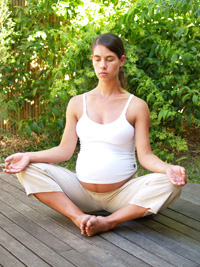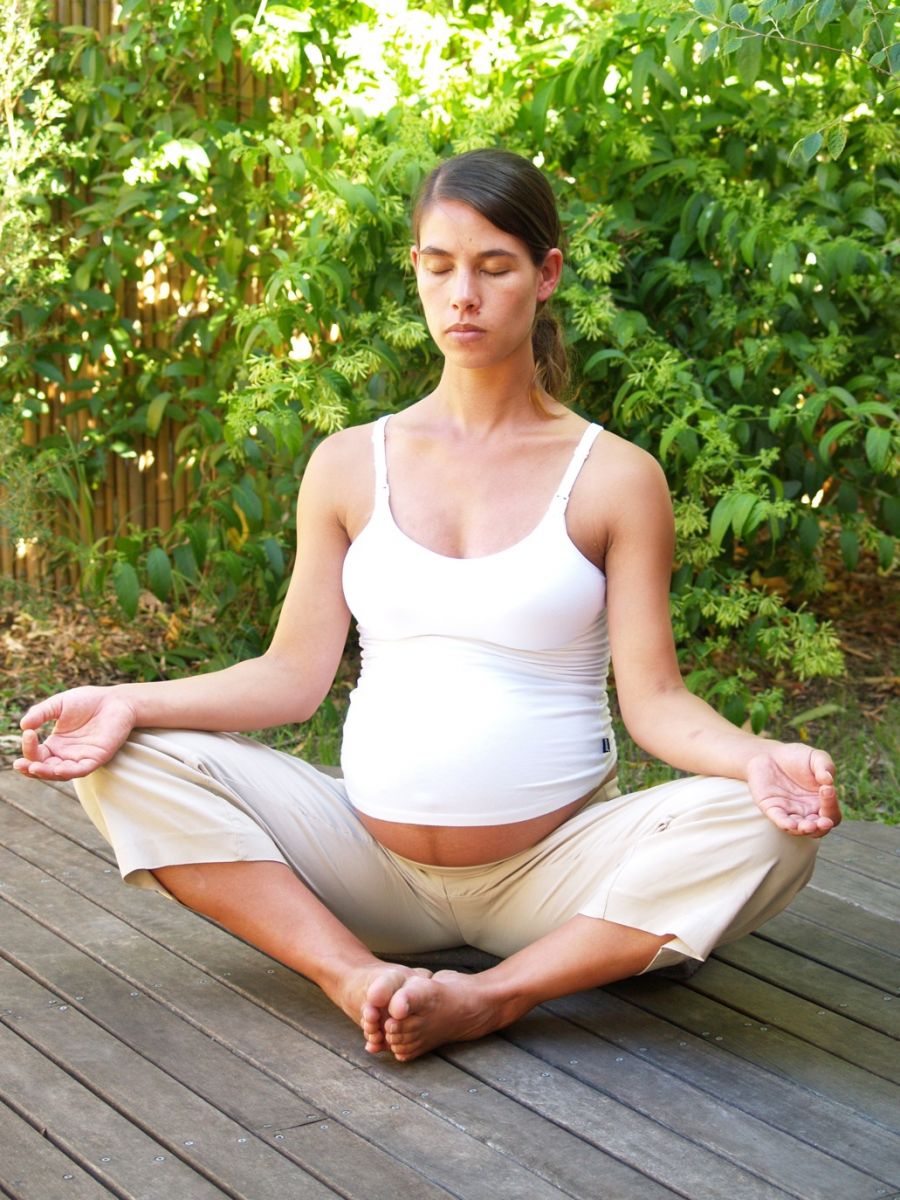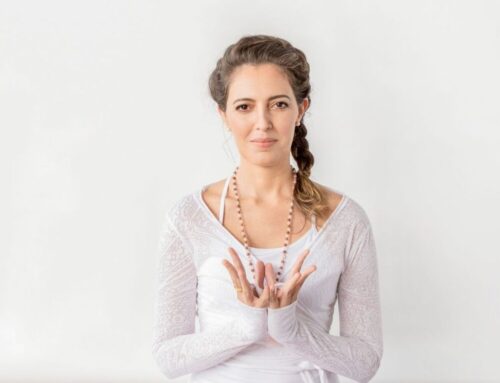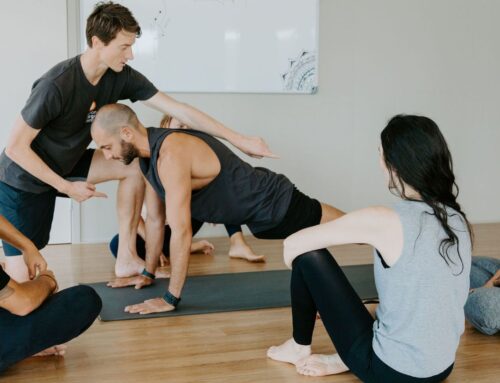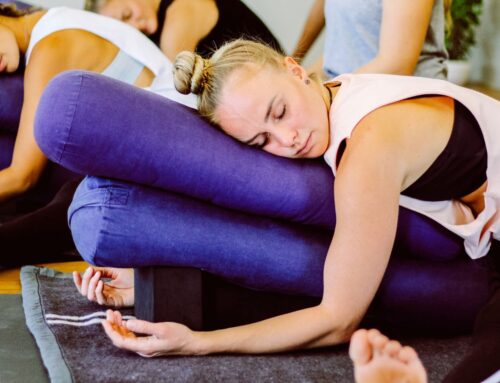Prenatal Yoga has become a sought-after, niche area. Trained prenatal yoga teachers find that their classes are overflowing with eager expectant mothers looking to enhance their pregnancy with yoga. In this article, Ana Davis explores some of the countless benefits of prenatal yoga.
Before a baby is even born, his/her senses are developing and being stimulated as he moves and stretches in his watery home, attached to the mother by his life-supporting umbilical cord. He can hear her heartbeat and external sounds – responding to the tone of his mother’s and father’s voices. A baby in utero can feel the warm amniotic fluid on his skin and sense his mother rubbing her belly. He can distinguish tastes, and even sense changes in light through his closed eyelids.
There have even studies been done to show that a mother’s thoughts and emotions have an impact on the future personality of the baby! In so many ways the connection between mother and child is inextricably formed as their subtle body rhythms are naturally synchronised over the nine months. A healthier mother equals a healthier baby, and this is why doctors and midwives regularly recommend yoga to their pregnant patients.
Pregnancy is a time when women are probably the most invested in their health and wellbeing and try to do everything in their power to support a healthy lifestyle. So it’s not surprising that many women first wander into a yoga school for the first time when they become pregnant. Byron Bay mother of two, Annette, looked forward to her pregnancy yoga classes each week because they gave her a “complete feeling of wellbeing”, the likes of which nothing else gave her, not even sleep.
“There not only seemed to be a calming effect on me but also on my baby. I was fortunate to enjoy an easy, healthy pregnancy,” recalls Annette. “I made a direct connection between my yoga and feeling so well.”
Like Annette, many mothers-to-be find that yoga improves their circulation and mobility and helps them manage the various ailments and discomforts of pregnancy. These may include back and hip pain, fatigue, fluid retention, leg cramps, constipation, insomnia, heartburn and varicose veins. As many regular practitioners know, yoga offers the combined benefits of stretching and strengthening. The hip-opening postures, or what I call the ‘classical prenatal yoga poses’, like baddha konasana (groin stretch) and upavista konasana (wide-legged seated pose), help open the pelvis and gently stretch the pelvic floor in preparation for birth. Standing postures like the warrior postures and ‘horse pose’ (standing squat) build stamina and strong leg muscles which are helpful to prepare a woman for an ‘active birth’.
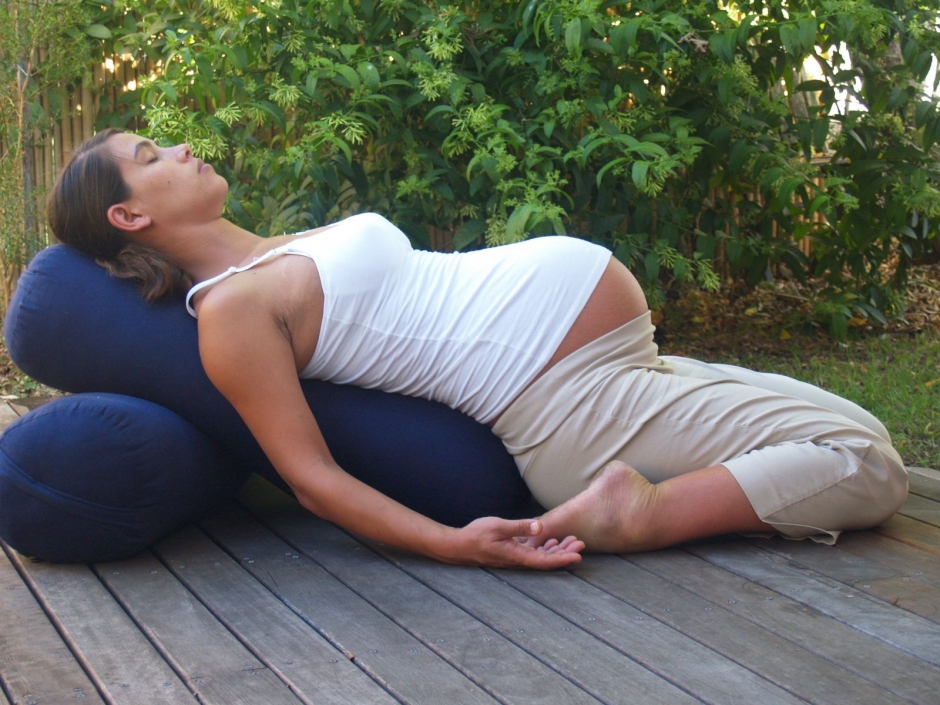
Incorporation of mulha bandha (the pelvic floor lock) statically and within the postures also increases the sensitivity and strength of her pelvic floor which puts her in good stead for postnatal recovery of this area. Another important benefit is that yoga teaches a woman how to breathe better. Slowing down and deepening her breathing has a direct effect on the nervous system, helping to instigate the ‘relaxation response’ of the parasympathetic nervous system, which counter-effects the ‘stress response’ generated by the sympathetic nervous system. It is well-documented that too much stress can have a negative impact on the health of an unborn baby, so it can be very helpful when a women learns breathing techniques to manage and minimise the negative effects of stress during her pregnancy.
Deep breathing also ensures good oxygenation of the blood to nourish both mother and baby. Not only does the yoga breath-work support a woman during the pregnancy, but is also an invaluable tool during labour and sets her up with good stress-management habits she can employ post-partum with the challenges of new-motherhood. Another stress-management tool offered by yoga is the practice of relaxation when students lie down at the end of the class in ‘savasana’ (‘corpse pose’) or yoga nidra (a deep, guided relaxation practice).
“Take time to nurture the space in which your baby is growing,” UK pregnancy teacher and author, Francoise Barbira Freedman writes. “Relaxing is a physical expression of your care for your baby growing inside you.”
Restorative yoga is another wonderful tool for rest and relaxation. When I was pregnant with my son, I found restorative poses were my savior as they worked to gently rejuvenate my energy, releasing physical and mental tension with minimal effort. The quiet time that a woman spends practicing yoga whether it be resting in a supportive, restorative pose, practicing pranayama (breathing techniques), or in meditation or visualisation, allows her the opportunity to build her bond with her unborn babe.
According to Thomas Verny MD in his groundbreaking book, The Secret Life of the Unborn Child, the quality of mother-fetus bonding has an impact on the very development of the child’s personality. “If the communication was abundant, rich and, most important, nurturing, the chances are very good that the baby will be robust, healthy and happy,” he writes.
Many elements of yoga philosophy can inspire a richer and more satisfying experience for an expectant mother as she moves through the stages of pregnancy, birth and into motherhood.Yoga helps her feel more accepting of the many changes to her body and her emotions that she undergoes during pregnancy, and it ultimately helps her have a more positive attitude towards the irrevocable changes to her life once she becomes a mother.
Ultimately, yoga teaches us about surrender and letting go of any set expectation of how things ‘should’ be during our pregnancy and beyond. Yoga is a wonderful, wholistic practice for a pregnant woman that will help her be in the best possible physical and mental shape for birth and motherhood, as well as supporting her each step of the way on the exciting journey that is pregnancy. But a final word of warning: not just any kind of yoga will do when you are pregnant. It’s important to attend a class taught by a qualified prenatal yoga instructor who understands how to adapt yoga safely and appropriately to the unique needs of pregnancy.
Ana Davis is the founder of Bliss Baby Yoga which specialises in Prenatal and Postnatal Yoga Teacher Training. Bliss Baby offers Prenatal Yoga Teacher Training Courses at the Byron Yoga Retreat Centre. More information here.

